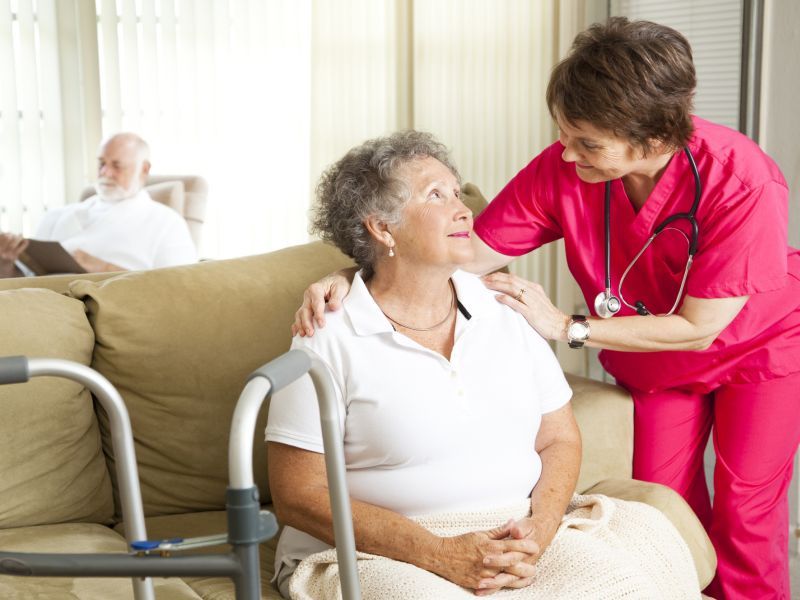
Older adults in long-term care develop detectible antibodies after COVID-19 vaccination, which may mean it’s safe to reopen these facilities, according to a new study.
But because it’s unclear how long the antibodies last, researchers from University of Pittsburgh Medical Center (UPMC) say there’s still a need to monitor symptoms and controls on reopening.
“COVID-19 hit long-term care facilities hard and caused the untimely death of hundreds of thousands of senior citizens in the U.S.,” said researcher Dr. David Nace, associate professor in the Division of Geriatric Medicine at Pitt’s School of Medicine.
“So, these facilities have been understandably reluctant to remove infection prevention measures. But we know that social interaction is important at all stages of life, and particularly in older age,” he said in a university news release. “Our study gives some cautious good news while pointing to knowledge gaps that will need more research.”
Having antibodies detected by the tests used in the study does not conclusively prove that someone can’t get COVID-19, researchers stressed.
“This shows that most are mounting an antibody response, but it does not tell us if that response is adequate to fight off the virus if they encounter it,” said senior author Dr. Alan Wells, medical director of UPMC Clinical Laboratories.
“These antibody tests were designed to tell us if someone had previously encountered the virus, but we are using them to gain insight into vaccine response,” Wells said in the release. “Theoretically, having vaccine-induced antibodies will protect against the virus, but we’ll need studies that follow long-term care residents over time before we can be confident saying how well and for how long vaccines offer protection.”
Between March 15 and April 1, Nace and colleagues tested blood from 70 residents of assisted living, personal care and independent living facilities.
All had received either the two-dose Moderna or Pfizer coronavirus vaccines.
The researchers found that all 70 participants had antibodies against SARS-CoV-2.
The study is too small to draw significant conclusions about the patients who had the strongest antibody response, but those who’d tested positive for COVID-19 before their shot did tend to have higher antibody levels, the team said.
Patients who were male, older, taking steroids, or had more time pass since vaccination tended to have lower levels.
“Whether older people have a waning immunity to the COVID-19 vaccine that is similar to the flu vaccine remains to be determined,” Nace said.
“So, while I think cautious reopening of long-term care facilities shortly after mass vaccination can be done, I would couple it with continuous monitoring for COVID-19 symptoms,” he said. “If someone has symptoms, I’d test them immediately, whether they were vaccinated or not, because prompt treatment with monoclonal antibodies could prevent hospitalization and death.”
The study was published April 12 in the preprint server medRxiv and has not yet been peer-reviewed.
More information
To learn more about COVID-19 vaccines, visit the U.S. Centers for Disease Control and Prevention.
SOURCE: University of Pittsburgh Medical Center, news release, April 12, 2021
Source: HealthDay

Leave a Reply